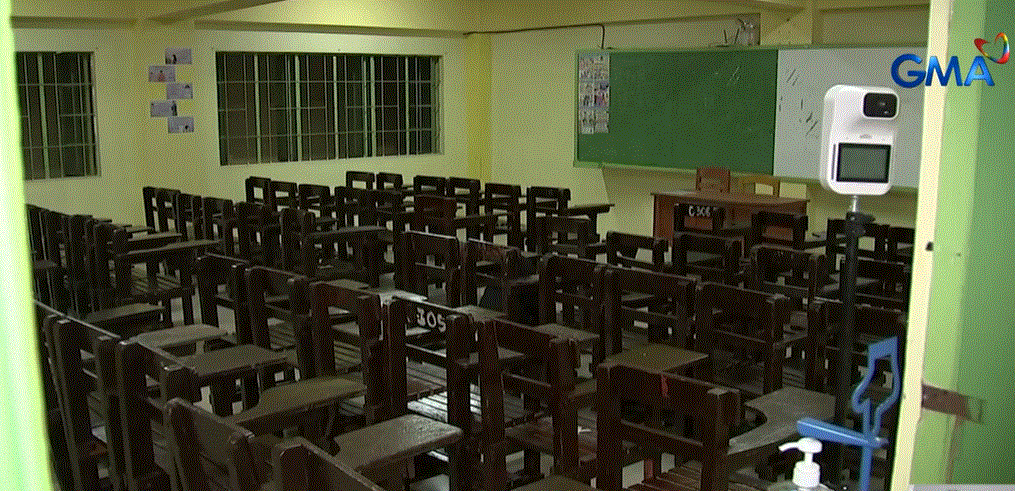PSALM defends itself from COA's report of 'lavish' spending
Breaking its silence, the state-run Power Sector Assets and Liabilities Management Corp. (PSALM) has defended itself from controversies on its expenditures, which, according to the Commission on Audit (COA), were anomalously used up and repugnant to the rule of law. Two weeks after the state auditor fiercely questioned its "lavish" expenditures that were supposedly tucked into its P471-billion stranded debt recovery, PSALM said its spending on performance bonuses, five-year service incentives, leave monetization, vehicle purchases, medical assistance and hazard pay conform to rules. "PSALM employees received performance [bonuses] that underwent a thorough review and approval by the board. The decision to grant the incentives is based on the performance of PSALM in fulfilling the objectives of the government's privatization program on power," PSALM said in a report disclosed to GMANews.TV on Friday. PSALM's mandate is to take ownership, manage, privatize and dispose of all existing generation assets, liabilities, real estate and other disposable resources of National Power Corp. or Napocor. The report said the Department of Budget and Management (DBM) granted PSALM to give incentive package — like allowances and bonuses — to its imployees after it proposed in 2007 a harmonized compensation plan such as salary increase. "The Budget Department's position actually affirms [our] practice of granting incentives premised on meeting or exceeding set targets," said PSALM. The corporation said the performance-based incentives were anchored on what it called "Corporate Action Plan" and "Corporate Performance Metrics." Under these schemes, PSALM said it sets corporate targets and the accomplishments are evaluated based on quantitative and timeliness measures. PSALM's internal audit department then validates the performance of the corporation, it added. But COA earlier noted that "the mere realization of the corporate targets does not warrant an astonishing reward of 5.5 times the monthly salary. These targets or goals were set or programmed at the beginning of the year being the corporation's mandate" under the Electric Power Industry Reform Act of 2001 (EPIRA). Also, PSALM pointed out: "The corporate performance-based incentives in 2008 and 2009 were approved by the President." During those years, PSALM and other government-owned and -controlled corporations were under the supervision of former President Gloria Macapagal-Arroyo. Under Section 64 of the EPIRA, "[t]o promote the prudent management of government resources, the creation of new positions and the levels of increase in salaries and all other emoluments and benefits of [National Transmission Corp.] and PSALM shall be subject to the approval" of the President. COA said PSALM's bonuses were given in increments at the rate of 3.5 percent on an annual basis. The COA report said PSALM violated Administrative Order 103 (b) that directs all government-run entities to "suspend the grant of new or additional benefits to full-time employees and officials," except for those that are based on collective negotiation agreement and those expressly provided by presidential issuance. However, PSALM failed to comment on the administrative order. High attrition rate On the grant of five-year service incentives, the corporation said the P980,000 worth of "recognition award was to re-affirm employees' commitment to the organization, enhance employees productivity, and recognize the individual's capacity and contribution in the attainment of the corporation's time-bound mandates." "PSALM has a high attrition rate yearly. With technical [knowledge] they possess in electricity trading, liability management and asset valuation, employees enjoy job competencies that make them sought after for private-sector positions that offer higher and better incentive packages," the corporation's report noted. The laptops given to 49 employees, PSALM said, were acquired through DBM's procurement system to "observe prudence, austerity and transparency" in the acquisition. "This eventually redounded to the benefit of the corporation as the employees use the laptops for work in meetings, presentations and remote electricity trading," it added. Under the Civil Service Rules, COA stressed that employees should serve for at least ten years to receive loyalty gifts. Under the same rules, gifts "shall be in the form of a pin, ring or medallion, and a cash gift of not less than P500 but not more than P1,000 for every year of service." "The grant of loyalty memorabilia or souvenir in the form of laptop computers lacks legal basis," COA earlier noted. Luxury cars, monetized leave credits higher than basic salaries? COA also found out that PSALM moved to monetize leave credits of employees. However, PSALM said the corporation relies on Civil Service Commission (CSC) Memorandum Circular (MC) 41, series of 1998, as amended by CSC MC 6, series of 1999. It provides that officials and employees in the career and non-career service, whether permanent, temporary, casual or coterminous, who have accumulated 15 days of vacation leave credits, shall be allowed to monetize a minimum of ten days, provided that at least five days are retained after monetization, and provided further that a maximum of 30 days may be monetized in a given year. "Monetization is optional for the employee and always subject to CSC rules," PSALM said. Also, PSALM said it obtained authorization from the CSC to adopt its own internal policies on leave monetization as long as PSALM would "not deviate from the basic CSC rule that there shall remain at least five-day vacation leave after the monetization to cover the required forced leave of an employee within the year." However, the state auditor said the grant of monetization of leave credits is in violation of the Omnibus Rules on Leave issued by the Civil Service Commission and PSALM Circular 2002-012 dated August 6, 2002. The monetized leave credits were higher than emloyees' basic salaries, said COA. COA said it is also looking into why PSALM purchased "luxury" vehicles. "These are not luxury vehicles," PSALM protested, however. The corporation said it obtained the approval of the President of the Philippines to augment existing service vehicles and to improve staff mobility and efficiency. "PSALM also stringently adhered to all technical specifications from the office of the President of the Philippines, implemented accounting rules and auditing laws, and followed rules and regulations in acquiring the vehicles," PSALM noted. Hazard pay, medical assistance COA earlier said the grant of hazard pay does not comply with Section 54 of 2007 General Appropriations Act and DBM's Budget Circular 2005-4 dated July 13, 2005. PSALM insisted that its officials and employees were "actually assigned to, and performing their duties in, strife-torn or embattled areas as may be determined and certified by the Secretary of Defense." "As a matter of policy," PSALM pointed out, "personnel entitled to hazard pay are those whose assignments are in distress or hardship areas that exposes them to physical hardship or accident that could result to serious injury or death or great danger or contagion or peril subject to certain conditions." PSALM also said the grant of medical assistance is in accordance with Section 2, in relation to Section 1, of the CSC MC 33, series of 1997. This was likewise approved by the President of the Philippines. PSALM failed to comment on the P1 million undocumented expenditures for the media, unliquidated cash advances of company officials, and the health and wellness benefits for employee that amounted to P35,000 each. These, according to COA, needed more explanations from PSALM. -- OMG, GMANews.TV









